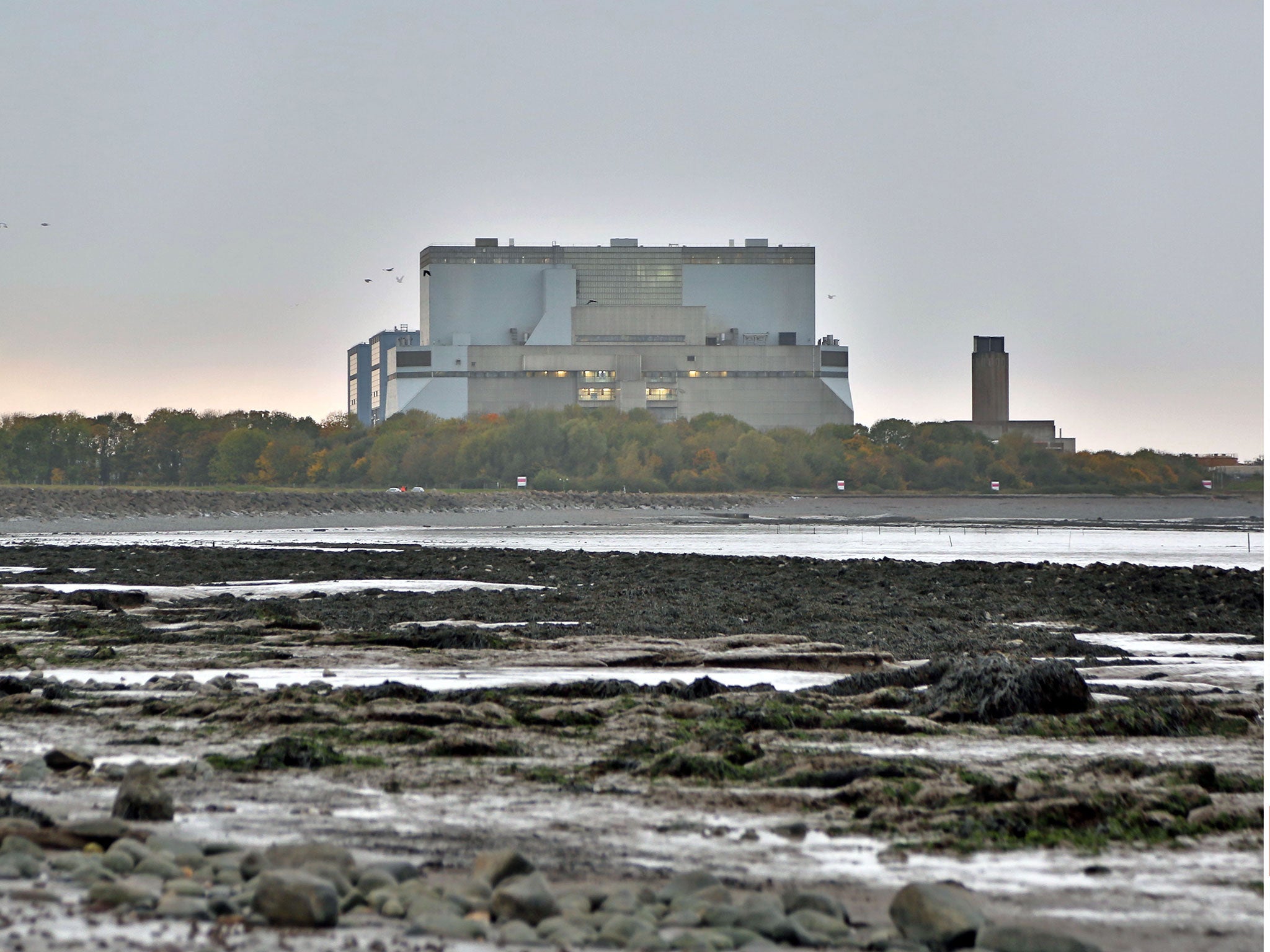Hinkley Point management is the perfect illustration of how not to conduct a modern energy policy
Nuclear power may well be a central component of our future energy needs – but not at any cost

Your support helps us to tell the story
From reproductive rights to climate change to Big Tech, The Independent is on the ground when the story is developing. Whether it's investigating the financials of Elon Musk's pro-Trump PAC or producing our latest documentary, 'The A Word', which shines a light on the American women fighting for reproductive rights, we know how important it is to parse out the facts from the messaging.
At such a critical moment in US history, we need reporters on the ground. Your donation allows us to keep sending journalists to speak to both sides of the story.
The Independent is trusted by Americans across the entire political spectrum. And unlike many other quality news outlets, we choose not to lock Americans out of our reporting and analysis with paywalls. We believe quality journalism should be available to everyone, paid for by those who can afford it.
Your support makes all the difference.Nuclear energy is a subject that divides opinion at the best of times. It is, say some leading scientists, the greenest way to produce our power requirements; activist groups, including Greenpeace, argue that the potential consequences of accidents make nuclear energy unconscionable. Some economists point to dwindling fossil fuel reserves and say the nuclear option makes long-term financial sense; others point to the rock-bottom price of oil and to the fracking industry’s potential to question those assumptions.
Today there are renewed question marks over Britain’s long-standing plans to build a new generation of nuclear power stations, following the resignation of EDF’s chief financial officer, Thomas Piquemal – apparently because he disagreed with the firm’s planned investment in a new reactor at the Hinkley Point site in Somerset. Several of EDF’s board members are said to share Mr Piquemal’s concerns.
This a big moment both for EDF, the French utility firm, and for Britain’s nuclear future. After all, the building of the new reactor on the Somerset coast was intended to be a model to be repeated at seven other sites. The British Government regarded the deal as so critical that it was willing to agree a hefty fixed tariff on the energy the new plant would produce – at £92.50 per Megawatt hour (MWh) in 2012 prices it is around double the UK’s standard wholesale electricity price. This was the necessary quid pro quo for EDF’s £18bn investment in construction.
Yet EDF has experienced considerable turbulence ever since the Hinkley Point plan was negotiated. First, it is increasingly debt-laden, to an extent far exceeding its market capitalisation. Second, other projects which use the same EPR (European Pressurised Reactor) technology to be employed at Hinkley Point have run into difficulties. In Finland, the Olkiluoto 3 plant was supposed to have been completed in 2009 and to have cost €3bn. Seven years on and the new power station remains offline and has overrun its initial budget by some €5bn. Perhaps of even greater concern are the problems encountered at the Flamanville site in northern France, where “serious anomalies” in the reactor vessel have been found by the French nuclear regulator.
EDF has also been hit by the fall in global energy prices. It agreed a deal last October to sell a 33.5 per cent stake in the Hinkley Point project to the China General Nuclear Power Corporation, which will pick up a third of the construction costs. Even so, there is speculation that EDF will not be able to bear the remainder without significant state support – the French government owns 84.5 per cent of the company.
All of this sounds like a prelude to an about-turn by EDF. In fact, though, Mr Piquemal’s departure may simply clear the way for the investment at Hinkley Point (and potentially thereafter elsewhere in Britain) to proceed. EDF’s chief executive remains full-square behind the project. More importantly, so does the French government. A volte-face would cast doubt over the country’s position as Europe’s leading player in the nuclear power market.
Politics, in short, is likely to win the day – quelle surprise. Yet if the major focus by analysts is on the potential pitfalls for EDF, might we not consider the matter from the point of view of British consumers? The falling price of energy casts greater doubt than ever on the fixed price negotiated by the UK Government for Hinkley Point’s output; and the problems identified at Flamanville remain to be fully explained. Nuclear power may well be a central component of our future energy needs – but not at any cost.
Join our commenting forum
Join thought-provoking conversations, follow other Independent readers and see their replies
Comments